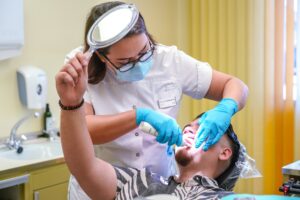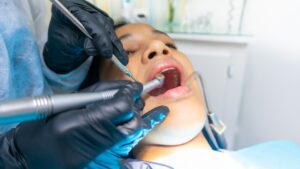
Bruxism, also known as teeth grinding, is a condition that affects a large number of people worldwide. It can occur during the day or at night and may lead to various complications, such as tooth damage, jaw pain, and headaches. The exact cause of bruxism is not known, but stress, anxiety, and certain medications are believed to be contributing factors.
In this article, we will explore the causes, symptoms, and treatment options for bruxism, and provide helpful insights for those who may be experiencing this condition.
The Causes of Bruxism
The exact cause of bruxism is not known. However, it is believed that stress and anxiety can trigger the condition. Additionally, misaligned teeth, sleep disorders, and certain medications can also contribute to bruxism. Alcohol and caffeine consumption can also exacerbate the condition.
The Symptoms of Bruxism
The most common symptom of bruxism is tooth grinding or clenching, especially during sleep. Other symptoms may include a sore jaw, headache, earache, and tooth sensitivity. In severe cases, individuals may experience chipped, cracked, or loose teeth.
Prolonged bruxism can also cause temporomandibular joint (TMJ) disorder, which can lead to jaw pain, limited jaw movement, and popping sounds in the jaw.
The Diagnosis of Bruxism
To diagnose bruxism, a dentist or doctor will examine the teeth, jaw, and mouth. They may also ask about the individual’s symptoms and medical history. In some cases, a sleep study may be recommended to identify the frequency and severity of teeth grinding during sleep.
The Treatment Options for Bruxism
The treatment for bruxism depends on the severity of the condition. In mild cases, self-care measures such as stress management, avoiding caffeine and alcohol, and practicing good sleep hygiene may be effective. For moderate to severe cases, the following treatment options may be recommended:
1. Night Guard
A night guard is a custom-fitted dental appliance that is worn during sleep to protect the teeth from grinding and clenching. It can also help to alleviate jaw pain and headaches caused by bruxism.
2. Botox Injections
Injections of botulinum toxin (Botox) can be used to relax the muscles in the jaw, reducing teeth grinding and clenching. However, this treatment is usually reserved for severe cases of bruxism that have not responded to other treatments.
3. Medications
Muscle relaxants and anti-anxiety medications may be prescribed to reduce teeth grinding and clenching. However, these medications have side effects and should only be used under the guidance of a healthcare provider.
4. Dental Correction
In some cases, misaligned teeth or bite problems may be the cause of bruxism. Dental correction through braces or other orthodontic treatments may help to alleviate the condition.
5. Cognitive Behavioral Therapy (CBT)
CBT is a type of talk therapy that helps individuals to identify and change negative thought patterns and behaviors. It can be beneficial for individuals with bruxism who grind their teeth due to stress or anxiety. CBT can help to reduce stress and promote relaxation, which can alleviate teeth grinding and clenching.
6. Acupuncture
Acupuncture is a form of traditional Chinese medicine that involves inserting fine needles into specific points on the body. It can be used to relieve pain and reduce muscle tension, making it a potential treatment option for bruxism. Some studies have shown that acupuncture may be effective in reducing teeth grinding and clenching, but more research is needed to confirm its effectiveness.
Bruxism as a Whole
Bruxism is a condition that can cause discomfort and damage to one’s teeth and jaw. It’s important to seek proper diagnosis and treatment from a healthcare provider or dentist to alleviate symptoms and prevent further complications.
Some treatment options for bruxism include self-care measures, night guards, Botox injections, medications, orthodontic treatments, and cognitive behavioral therapy (CBT). By understanding the causes and symptoms of bruxism, individuals can take steps to manage or prevent the condition and maintain good oral health.
If you’re experiencing severe tooth damage or pain due to bruxism, don’t hesitate to contact Dentistry For Life, your trusted emergency dentist in Texas. Our experienced team in Fort Worth and surrounding areas can provide immediate care and treatment options to alleviate your symptoms and prevent further damage to your teeth and jaw. Contact us today to schedule an appointment and get the relief you need!



